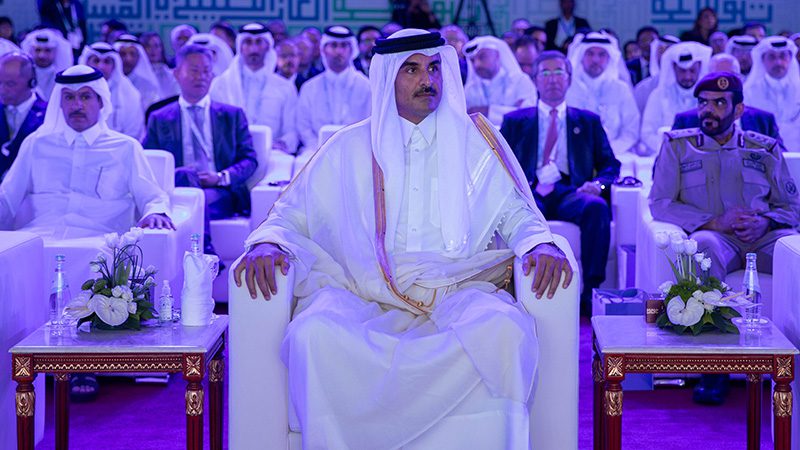Sheikh Tamim bin Hamad Al Thani, Amir of the State of Qatar, laid the foundation stone of the North Field expansion project, which will raise the State of Qatar’s LNG production capacity from the current 77 million tons per annum (MTPA) to 126 MTPA by 2026.
The project’s groundbreaking took place during a special ceremony at Ras Laffan Industrial City attended by Saad Sherida Al-Kaabi, the Minister of State for Energy Affairs, the President and CEO of QatarEnergy, and the CEOs and senior executives of QatarEnergy’s partners in the expansion project.
The project includes six mega trains, each with a production capacity of eight MTPA of LNG, four of which are part of the North Field East expansion project, and two are part of the North Field South expansion project, contributing a total of 48 MTPA to global LNG supply.
QatarEnergy hires Hyundai to build 17 LNG carriers | OilNOW
Speaking at the ceremony, Saad Sherida Al-Kaabi stressed that this pioneering expansion project is a quantum leap in the country’s leadership in the field of energy.
Al-Kaabi said, “This major expansion comes at a crucial time, as natural gas occupies a pivotal position in the energy mix in a world facing geopolitical turbulences and is in dire need of clean energy sources that are in line with the global environmental goals.”
He added, “There is no doubt that these additional quantities of natural gas are of great importance as they will play a prominent role in enhancing energy security, supporting a practical and realistic energy transition, and ensuring fair and equitable access to cleaner energy for a sustainable growth and a better future for all.”
QatarEnergy signs 27-year LNG supply deal with China’s Sinopec | OilNOW
QatarEnergy is partnered in this global project by TotalEnergies, Shell, ConocoPhillips, ExxonMobil, Eni, Sinopec, and CNPC.
In addition to LNG, the project will produce 6,500 tons per day of ethane gas, which will be used as a feedstock in the local petrochemical industries. The project will also produce about 200,000 barrels per day of liquefied petroleum gas (propane and butane), and about 450,000 barrels per day of condensates, in addition to large quantities of helium and pure sulfur.



